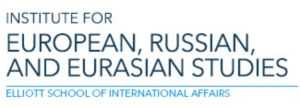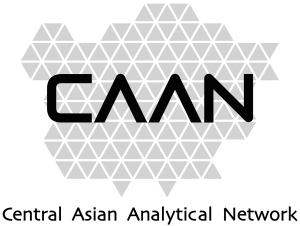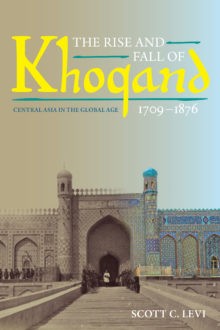Oxford University historian Peter Frankopan talks to Voices on Central Asia about his latest book, The New Silk Roads, and where Central Asia fits into the complex global jigsaw puzzle that forms today’s shifting and evolving world.
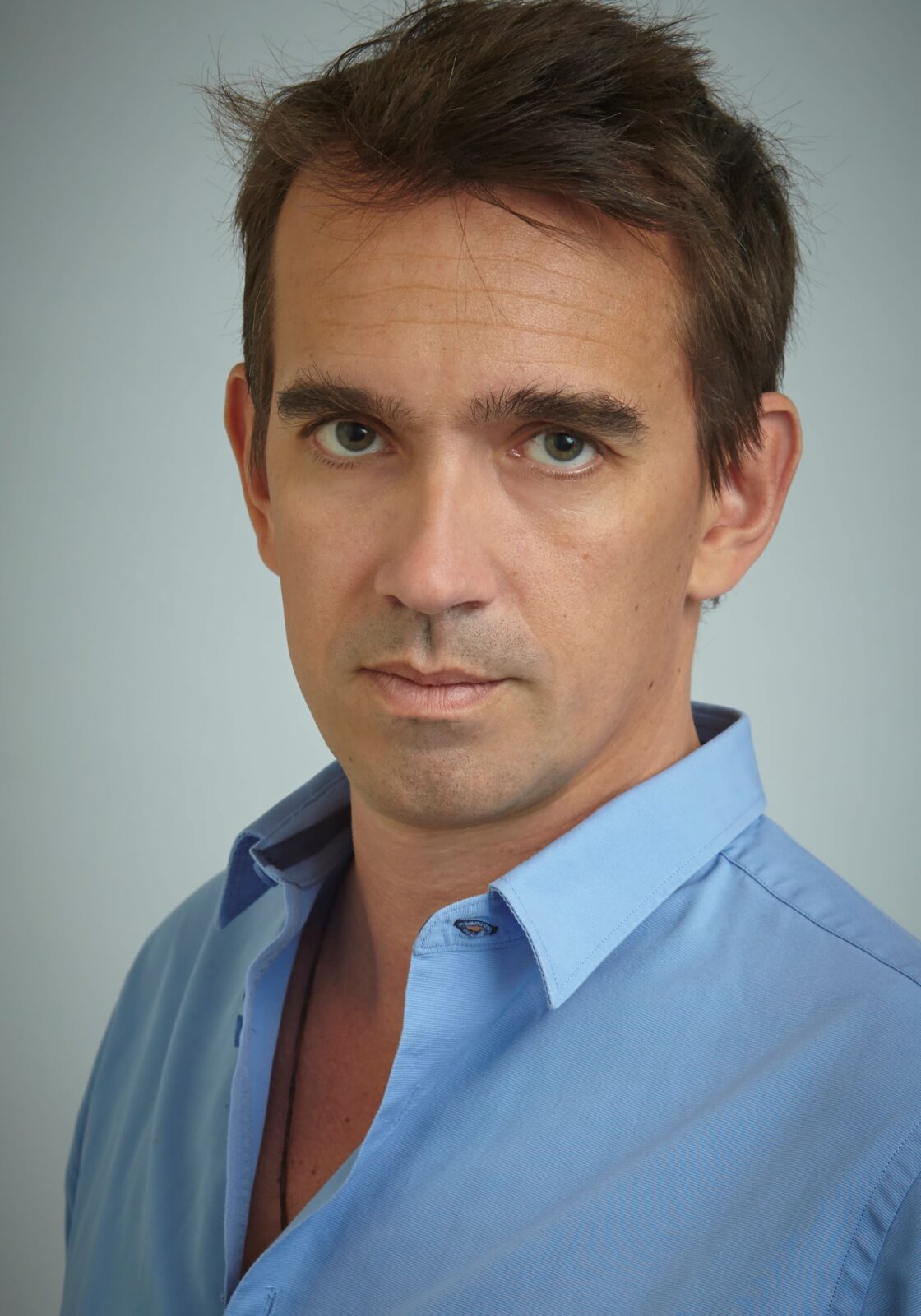
Peter Frankopan
Peter Frankopan is Professor of Global History at Oxford University where he is also Senior Research Fellow at Worcester College and Director at the Centre for Byzantine Research. He was Schiff Scholar at Jesus College, Cambridge, and Senior Scholar at Corpus Christi College, Oxford. He has been Stanley J. Seeger Fellow at Princeton, Scaliger Visiting Professor at Leiden and Presidential Scholar at the Getty Center in Los Angeles. His revised translation of The Alexiad by Anna Komnene was published by Penguin Classics in 2009. He is the author of The First Crusade: The Call from the East (2012) and The Silk Roads: A New History of the World (2015).
Tell us about The New Silk Roads: how it moves on from your last book, The Silk Roads, and why you decided to write it.
I’m a historian based in Oxford, and some years ago I wanted to re-center how we look at history. It seemed to me that there are lots of parts of the world that we don’t pay much attention to when we think about the past, and not only do they have interesting histories of their own, but there’s also an interesting way of looking backwards in time where lots of regions that we gloss over have played a very important role in world history—so trying to tell history from the perspective not of Western Europe, which is the usual way we see things, in the West anyway, but to focus broadly on Central Asia, whatever exactly that means.
I take loose definitions when I look at geography: I’m less worried about labels than trying to follow the action, and if you follow global exchange, natural resources, demographics and so on I think you can have a much better way of understanding the past, going back 2,500 years. In fact, I start The Silk Roads, which came out in 2015, by explaining that it’s quite striking that Alexander the Great wasn’t interested in conquering Europe. For him, the heart of the Persian Empire was what really mattered—cities like Samarkand, and the Indus Valley.
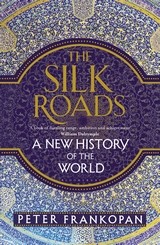
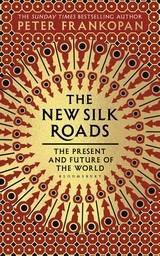
That book got a lot of visibility, and I was talking to my publishers about a year ago and saying that the story’s changed a lot. As a historian looking at change over a long period, I know that it’s not unusual for there to be big disruptions and shifts in global political and military power. I said that I’d quite like to bring The Silk Roads up to date with a new final chapter. I spent some time in Turkmenistan over the summer, where there’s not an enormous amount to do in the evenings, and broke the back of writing a really long final paragraph! It’s a 300-page book that tries to explain lots of different things.
One of the challenges is that you’re used to having to look north, south, east and west, but if you can stand further back and join up Turkey, the Middle East, Central Asia, Russia, South Asia and China then you can try to see how all these bits and pieces not only connect to each other but how they’re influencing and shaping and causing reactions. That’s a better way of trying to look at the world of today. The last book is a history that goes back in great detail over a couple of thousand years. This one is a snapshot, like opening the window and looking out on the town square and saying: what’s going on?
Reclaiming the Past
The Silk Roads was a revealing book for Central Asians in that you shifted the angle of looking at world history from a Western one to an Eastern one. Many Central Asians would love to believe they’re at the center of world history, but might reality not be slightly disappointing? How far would you agree that Central Asia remains a closed and unknown place to the world, subject to shifting geopolitics, authoritarianism, and its decaying Soviet legacy?
Everybody wants to feel that their country is up there at the center of everything, and there’s a value, I suppose, in enabling that to happen—although in this world of populism and nationalism, that can also unlock the genie from the bottle. The past can always be reclaimed. History is a very political tool. There’s a degree to which one could be a bit cynical about how it gets used, but I think there is an important way of explaining how the nomad world helped fuel the growth not just of cities in Central Asia, but how it was connected to things like the rise of the Moghul Empire and therefore the British Empire, how Central Asia was really connected to the growth and supply of cities like Isfahan, Baghdad and Damascus—that those great steppes have had an important role in the past. Whether they’re absolutely leaders in the way that the political elite try to talk about today is another matter, but I think they have been glossed over by history.
The nomad world connected to things like the rise of the Moghul Empire and therefore the British Empire
One of the challenges for Central Asia is, if there’s going to be talk about a new golden age, then it’s about the reality of improving education systems, welcoming pluralism, having freedom of the press. I think we’re all watching Uzbekistan at the moment, where it does seem to be a case of several steps forward followed by occasional steps backwards, but generally that looks like a positive movement. In fact, if you’re mature and sober, you can realize that sometimes criticisms are not just well-meant but well-aimed, and actually they can, if you’re able to learn from them, strengthen you rather than make you feel that they’re undermining.
One of the challenges for elites who are used to getting their own way and either doing things in silence or to profound adulation is that it’s quite hard to get your head around the idea that it’s a free-for-all. Some of it is about getting the idea that losing a bit of control is not a bad thing. For totalitarian states that had 70 years of communism, that’s quite hard to do. If one takes a historian’s view, it’s only been 25 years since the end of communism, and actually there’s quite a lot to be celebrating; there’s quite a lot that has changed that has improved. But there are also lots of ways, as in a lot of Asia, that a lot of those freedoms, over the last 18 months, have started to go backwards. It’s not a constant progression toward happiness and marshmallows for everybody. But there are lots of nudges going in the right direction.
That business of trying to put Central Asia back in the center of the picture and celebrate its past needs to be done quite carefully, because it’s very easy to become over-arrogant. Part of the challenge that the Central Asian republics have always had is that they’re not masters of their own destiny. There always have to be co-operations with neighboring states, and some leaders in the past and present are better at doing that than others.
Democracy or Repression?
Your book takes quite a positive view of the new links being forged in the world today, but is there also a negative element: do they enable authoritarian states to learn “worst practices” from each other in repressing their people?
There is, particularly in terms of the technological tools that we have to silence people—for example, Chinese surveillance equipment and hardware and software have been instrumental not just in Central Asia, but right across Africa.
But I also think that in the West we never really want to take responsibility for our role in all these things. The issue is not just the role Facebook plays in, for example, sharing user data with the Russian state; Facebook has been instrumental in the persecution of Rohingya in Myanmar. So our own technologies are used in exactly the same ways.
Where’s the moral compass for authoritarian countries now? With Western democracies no longer leading by example, why should they aspire to be democracies?
I think we shouldn’t beat ourselves up. Of course, there are challenges right now with our leading global democracies: Trump’s America is deeply divided, whatever side of the spectrum you’re on; the UK likewise over Brexit; in France there’s rioting on the streets; and there’s the rise of the far right and far left in places like Germany. I think it’s true that we’re not setting the best example—that if you were a Central Asian state thinking, “What’s the right model that we should follow?” it’s quite hard to imagine anybody saying that we should be just like Donald Trump or just like Britain.
On the other hand, that requires us to tell our story in the West more fairly and more evenly and to explain what the downsides are of repression, and what the benefits are of pluralistic, open, tolerant democracies. I don’t think we do that particularly well. As a result, there’s a void right now across a large part of the world.
Also, part of the problem in the West is that social mobility has declined, so that in fact according to the Gini Index you have a better chance if you’re born in Kazakhstan of getting out of the bottom 20% of society than if you’re born in the US or UK. That’s incredible, really. The challenge in any society is to produce a meritocracy that allows clever, talented people to rise to the top.
China’s Muscle
How far can the type of regional cooperation that happened along the ancient Silk Road be revived through China’s Belt and Road Initiative? What is the potential of BRI for Central Asia, given the region’s close ties to Russia?
Each state has a slightly different challenge of its own: its own geography, its own demographics. Kazakhstan is absolutely enormous, with a very low population density—only 18 million people. This means roads have to be very long, and it’s expensive to build roads. On the other hand, as in the past, just like 2,000 years ago, leaders realize that enabling people to communicate and travel easily and securely—it was understood for millennia that this boosts cooperation, it boosts trade, and it boosts tolerance.
Just like 2,000 years ago, leaders realize that enabling people to communicate and travel easily and securely boost cooperation, trade, and tolerance.
According to the Asian Development Bank, Asia as a whole requires $2 trillion a year in investment, which puts the Chinese plan for pumping in hundreds of millions in perspective. There’s plenty of space for other people to invest too, but I can’t see the EU or the US or many others offering to contribute to building roads and power plants in countries that are a long way away. So China is there offering cash, and the challenge is to negotiate the loans at the right payment levels and not to bite off more than you can chew. There’s also high-level corruption, which is a fact of life when there’s money involved. Second, you have the challenge of poorly evaluated projects, where you think people are going to spend this much on motorways or buying train tickets and those numbers are just wrong, therefore you get into default. Third, the benefits of BRI projects go to Chinese contractors—they get built by outside workforces, but that’s a negotiating point that the local governments need to be stronger or tougher on. The Chinese aren’t forcing anybody to take these funds—they’re making them available.
There are plenty of high-profile projects that have gone wrong. The generators in Bishkek that were restored and cost almost $400 million and don’t work—that’s caused a rumpus in the parliament in Kyrgyzstan, where the discussions have been about whether this should have been done in the first place, how was it paid for, how was the price agreed, who did the work, and who’s now liable. When that broke down it was -30 in Bishkek. Those kinds of things are reputationally very damaging. I think the million-dollar or billion-dollar or maybe trillion-dollar question with BRI is: is China going to learn from these mistakes itself? Are these actually seen as mistakes in Beijing, when there are defaults and possession taken of key assets? What is it that China actually wants from this? BRI was only announced five years ago, and I think we’ll just have to wait and see how it works out.
Re-Education Camps
The Central Asian countries are minnows on the world stage and they don’t have much leverage with China, which brings us to another question: the “re-education camps” incarcerating ethnic minorities including Uyghurs, Kazakhs, and Kyrgyz in Xinjiang. Kazakhstan is in a difficult position: China is a powerful ally, but there is a vocal domestic lobby expressing concern about what is happening to Kazakhs there. How do you see this playing out?
Welcome to the region! That’s how it’s always been in Central Asia—how do you negotiate between China, and Russia, which is still an important player for lots of reasons, and looking south too. I think Kazakhstan has to negotiate quite carefully this line of how not to antagonize China. Here in the West there’s a lot of noise about the Uyghur camps, it’s very visible in the press, but I see very little movement by any of our governments in trying to do anything about it, in terms of raising it at the Chinese level—or knowing how to raise it at a level that would be helpful. But we live in a world where the president of the United States after the murder of Jamal Khashoggi goes live at the White House and says: to be honest, we sell them a lot of weapons and their oil supplies are very important, so there’s not much we can do about it. I think we don’t know how to engage with China about these kinds of issues. Certainly, the fact that there’s been no attempt to roll back despite the international criticism suggests that Beijing thinks that it’s either immune or shouldn’t care about criticism from outside. In the context of rising pressures from trade tariffs and [Chinese] executives being arrested [at US request], I suspect that the hard-liners are in the ascendency and think there should be more re-education, not less.
The root question of the challenge is: why does China suddenly feel so anxious about its Muslim minority? There have been some high-profile terrorist attacks in Xinjiang, and I don’t want to play them down, but I also don’t want to play them up. It was a huge shock to China, but it wasn’t on an over-dramatic scale. It’s using a very big stone to squash a very small ant, if fundamentalism really is a challenge. But anybody who studies history will tell you that locking people up for forced re-education tends to do exactly the opposite of what you think it’s going to do: it radicalizes more people rather than less. So Kazakhstan has to work out, as does the international community, how to engage with China to say: look, obviously you think this is a problem, can we better understand what the problem is that you’re trying to solve? We [in the West] can explain from our cases how locking people up in camps doesn’t end well and turns into crimes against humanity, and how this does huge damage to the view of China around the world. We in Europe have terrible experiences of doing this ourselves—how we treated minorities in the past. These are very valuable lessons. But finding ways to do this in the context of rising tensions between states doesn’t look particularly easy right now.
Global Jigsaw
Where do you see the Central Asian states in 10 years?
The honest answer is that when you’re part of a big jigsaw, you’re not the master of your own destiny. Those questions have to be answered within the context of where we think Russia, China, Turkey, Iran, and also India and Pakistan will be—a lot depends on where it all ends up.
When you’re part of a big jigsaw, you’re not the master of your own destiny
It’s a slightly evasive answer, but as a historian I would say that you can’t isolate one part of the puzzle and try to make a prediction: it’s trying to work out those wider, bigger themes. The things that keep me awake at night: it’s about this new world—or the old world that’s returning—where there are a lot of people willing to flex their muscles, and what happens in these very complex multilateral relationships. Central Asia will be shaped in response to that.
I think that’s an important observation for those in Central Asia: that you need to make the right decisions for your governance, opening up in terms of pluralism, not being frightened of press freedoms, and realizing how that helps social mobility and creating a good state in the future. But you have to look constantly over your shoulder—left, right, north, south, east, and west—and that’s been the same for two or three thousand years!
Joanna Lillis is a Kazakhstan-based journalist reporting on Central Asia for outlets including The Economist, The Guardian and the Eurasianet website. Prior to settling in Kazakhstan in 2005, she lived in Russia and Uzbekistan between 1995 and 2005, and worked for BBC Monitoring, the BBC World Service’s global media tracking service.
